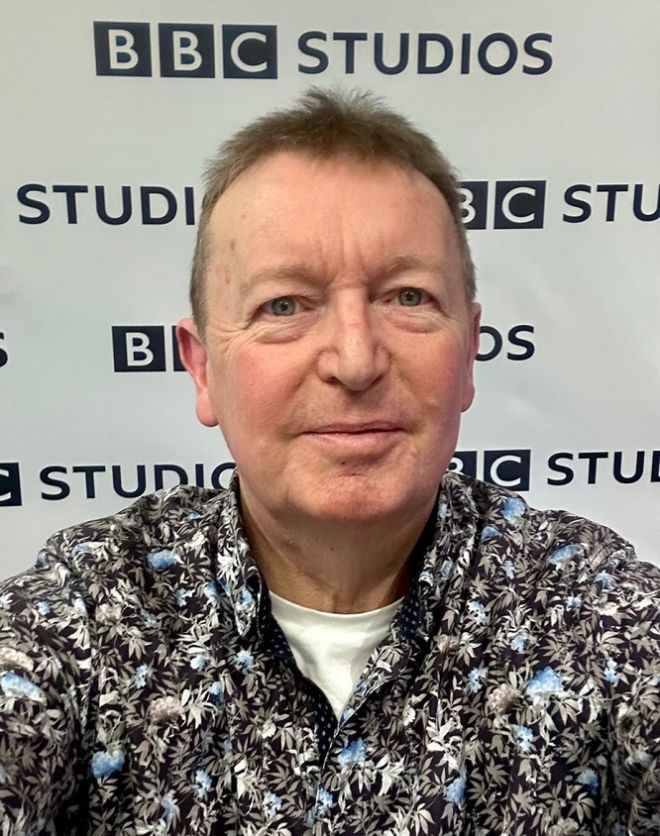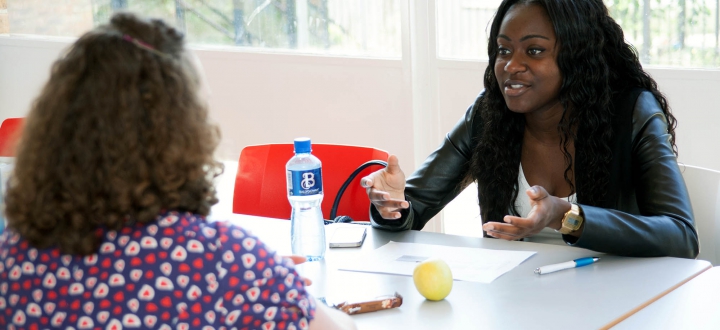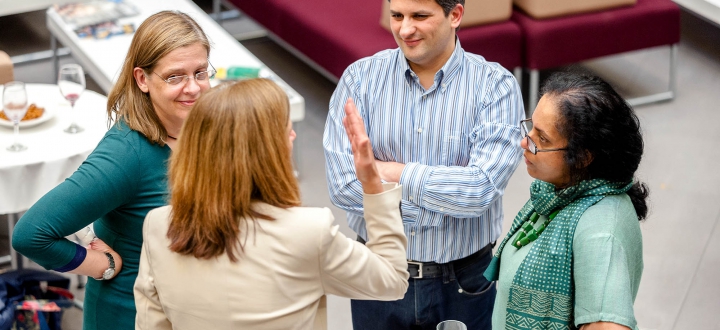Catching up with Robert Edwards

Robert Edwards studied Applied Physics and graduated from Kingston University in 1974. Robert is a BAFTA award-winning sound director and mixer with an extensive career working on television programmes such as The X Factor and Britain's Got Talent. He has also worked on worldwide live events including the opening and closing ceremonies for the Rio, Tokyo, Pyeongchang and Beijing Olympics and UEFA Champions League finals in Moscow, Athens and Istanbul. Most recently, he was appointed by the BBC as Head of Sound for the Eurovision Song Contest 2023.
How did you develop your career in sound production?
I left Kingston in 1974 and became a sound trainee at Southern ITV in Southampton. In 1982, after working on every type of programme – from news to drama, from live to recorded – I moved to Maidstone as the leader of the sound team for TVS who designed and built the television studios there. In 1993, I went freelance and formed an independent sound company working mainly on large-scale live productions for Sky, BBC and ITV in the UK, and then with the broadcast services HBS for the Football World Cups and OBS for the Olympics.
Tell us about your experience on the Eurovision Song Contest
As a result of working alongside colleagues on the Olympics, I was asked to mix the Eurovision Song Contest from Lisbon for the Portuguese broadcaster RTP on behalf of the European Broadcasting Union. It was a "once in a lifetime" opportunity. But as a result of Ukraine's win in 2022 and the BBC taking over the hosting duties, I was asked by the BBC to be Head of Sound, to design and implement the delivery of all the audio for radio and television for a live audience in excess of 500 million people. Suddenly it became a "twice in a lifetime" opportunity.
What have been your top career highlights so far?
In no particular order: mixing the first-ever Pop Idol series final with Will Young and Gareth Gates, mixing the 2005 Champions League Final in Istanbul, mixing in immersive sound in Beijing in 2022 while 200 tonnes of fireworks were exploding over the top of my Portakabin, and finally mixing "Symphony for the Spire" live at Salisbury Cathedral with Charlton Heston sitting on the sofa behind me. I won a BAFTA for that one.
What career advice would you give to recent graduates?
Try to find a career you are really interested in. Be dedicated, work at it, stay current and don't be scared to take on challenges, however difficult the pathway may be. On leaving Kingston, I was turned down by the BBC as I had red-green colour deficiency and was told to find another career. Instead, I found another employer. Revenge is sweet; nearly 50 years later, they asked me to be in charge of sound for Eurovision. I now delight in telling them that "strictly speaking, I shouldn't be working for you…"
What is your favourite memory as a Kingston student?
Being part of a great community and joining clubs and groups with like-minded anoraks and musicians, all part of growing up, and having the freedom to find out exactly what I wanted from life.
Unbelievably, in 1972 when I started at Kingston, we were given just five minutes of computer time per week. It allowed us to run simple programmes from punched tape. If the result was not correct, we had to wait a whole week for another go. No internet, no mobile phones.
Tell us something no one would guess about you.
I'm famous for inventing the quiz programme Catchphrase's buzz-in noise.
Contact us
Development, Alumni Relations and Engagement (DARE)
2nd Floor, Main Building
Penrhyn Road
Kingston upon Thames
Surrey KT1 2EE
Tel: +44 (0)20 8417 3664
Email us
Share your news
We love hearing from all Kingston graduates – no piece of news is too big or small, so whatever you have done or are about to do, email us and let us know!
Contact us
Development, Alumni Relations and Engagement (DARE)
2nd Floor, Main Building
Penrhyn Road
Kingston upon Thames
Surrey KT1 2EE
Tel: +44 (0)20 8417 3664
Email us

